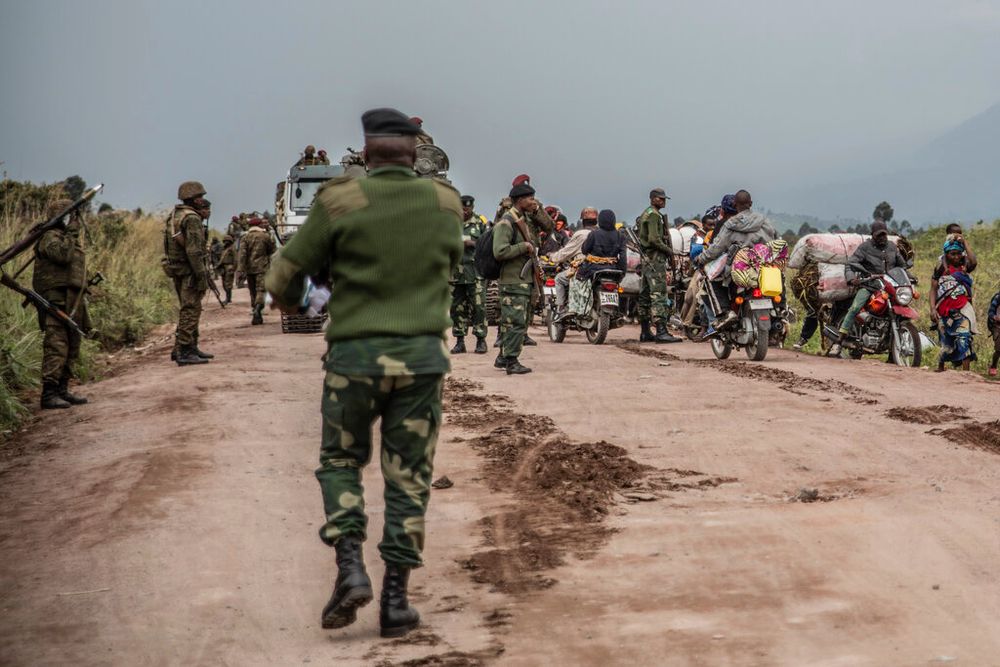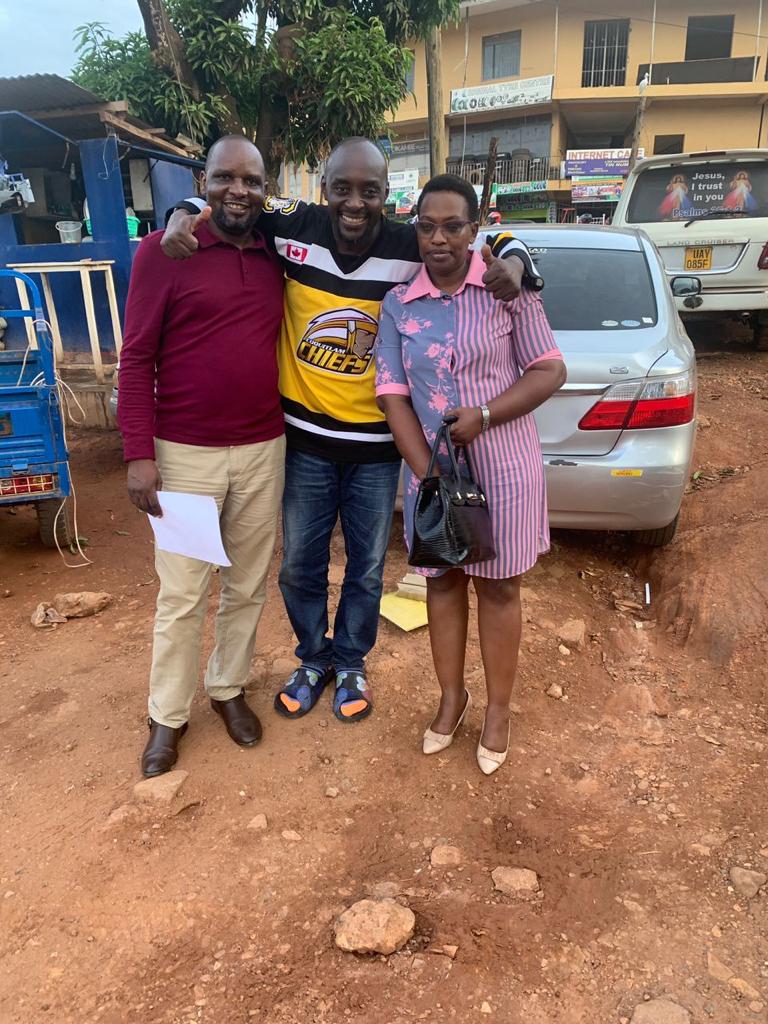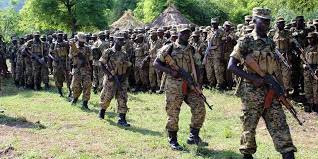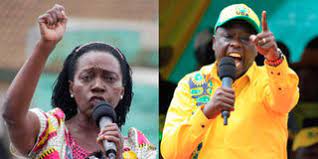Regional
DRC escapism will not help find solution to internal issues

The current
skirmishes between the M23 rebel group and the Congolese army, FARDC, in the
eastern part of the country is without doubt a result of some worrisome internal
problems than external.
But
instead of focusing on real and lasting solutions to issues, the DRC government
is quick to blame Rwanda and has, on several occasions, tried to drag its
neighbour into its domestic security issues.
The
rebels in question are Congolese nationals with grievances against their own
government. Theirs, therefore, is an issue, which should be resolved internally
without dragging any neighbouring country into the problem.
Former
M23 fighters who fled to Rwanda in 2013 were disarmed, and cantoned far away from
the DRC border, as agreed by the regional mechanism. Rwanda previously
facilitated engagements between these ex-M23 combatants and their government
which culminated in a repatriation roadmap but, unfortunately, authorities in
Kinshasa were not interested in
implementing the roadmap and this caused problems.
For
close to 30 years now, some DRC leaders and citizens have blamed the government
of Rwanda for their ills.
The
insecurity in the DRC’s east is instigated by an attitude of escapism on the part
of some leaders in the country. After failing to carry out their
constitutionally-mandated duty, they resort to finding an excuse – blaming
their neighbours. For some Congolese, attributing all their misfortunes to
Rwanda seems to be the easiest thing to do.
Congolese
are well aware and should not endeavor to overlook the fact that even before
1994, well before they welcomed remnants of the perpetrators of the 1994
Genocide against the Tutsi in Rwanda, eastern DRC was reasonably insecure.
Countless
armed rebel groups were already active by the late 1980s, in the Kivus. By the
mid-1990s the Mai Mai had already killed dozens of Virunga rangers. The
Congolese should not run away from their own internally stirred misfortunes.
They need to look within, deep and honestly, and objectively analyse what has
afflicted their country for close to a century now.
This
is perhaps the starting point to finding a sustainable solution to the state of
insecurity that has for long blighted eastern DRC.
What
most Congolese choose to ignore is that the situation worsened when France, in
cohorts with former President Mobutu Sese Seko’s Zaire, enabled the creation of
an escape route and safe haven in eastern Zaire, during the infamous French
Operation Turquoise in 1994, for the Hutu Power Genocide ideologues who
organized and perpetrated the genocide. The mass murderers were granted the
free reign to regroup in Zaire and continue to massacre the Tutsi in their host
country and would often make incursions into Rwanda to kill more.
During
their attacks, they did not spare the Hutu, in both countries, who did not
share their genocidal ambition. On the other hand, the UN system as a whole was
complicit and continues to be by failing, and to some extent refusing, to act
decisively to uproot the genocidaires from eastern DRC.
The
consequences of this failure continue to be felt 28 years later. The
FDLR/Interahamwe have managed to entrench their genocidal ideology and wrecked
the region’s customary social fabric to the extent that the initially peaceful
Congolese now find it easy to pick a machete and kill.
A
case in point is the recent sensitization campaign from one of the Police
chiefs in eastern DRC who called for citizens to take up machetes and kill
people. Worse still, for nearly three decades, there has been consistent collaboration
between the FARDC and the FDLR in eastern DRC.
It
is deplorable that the FDLR, which harbors a long-term sinister plan to
destabilize Rwanda, has been tolerated and preserved by the DRC, Rwanda's
Minister of Foreign Affairs told a Summit in Malabo, Equatorial Guinea, on May
28.
Over
the years, he said, the Congolese sanitized this genocidal armed group, to the
extent that it is currently co-located, and fighting alongside the FARDC.
“Rwanda
wishes to reiterate that the FDLR and its various splinter groups pose a
serious security threat, not only to Rwanda, but to the entire region,” the
Rwandan Minister said.
“There
have been several bilateral and regional initiatives, designed to address the
serious threat of the FDLR, but the DRC government has persistently shown
reluctance to implement these agreed plans. It is therefore irresponsible and
diversionary of the DRC to insist only on combatting M23, while conveniently
ignoring the FDLR, which it has hosted for all these years.”
Rwanda
still believes that cooperation between the two countries is of mutual benefit.
Rwanda
has always stood ready to contribute objectively and meaningfully work with
neighbours to uproot insecurity.
However,
as a country that values its security just like any other sovereign state,
Rwanda can never allow anyone to destabilize its peace, either openly or in
clandestinely. There shall always be a line never to cross.
In
spite of a series of recent FARDC military provocations including shelling on
Rwandan territory, Kigali has not reacted in equal measure. But Congolese
authorities ought to know that such behaviour will not be tolerated much
longer.
“While
it would have been legitimate for Rwanda to respond, we have instead
consistently requested for investigations of these provocations, by the
Expanded Joint Verification Mechanism of the ICGLR,” Biruta said.
In
Malabo, the Rwandan Minister reiterated, directly, to “my Congolese brother”
that: Rwanda has the right to respond.
“Our
President, His Excellency Paul Kagame, pointed this out very clearly to his
Congolese counterpart. Whether now, or in the future, Rwanda, like any other
country in a similar situation, would have a right to respond on such
provocations.”
For
now, however, Rwanda is not interested in engaging in unnecessary conflicts
with its neighbours. And it cannot be co-opted to doing so through propaganda
and other means currently being used by the FARDC and their FDLR allies.
The
problems of DRC are internal in their nature and can only be solved through
objective diagnosis of their causes, unbiased management and through pragmatic
solution finding approach.
Biruta
said: “Rwanda hence appeals to the DRC to observe good neighborliness, own up
to her problems, and avoid apportioning blame where it none exists. There are
several initiatives in place to address the existing problems, but without
political will, we will remain in a vicious cycle of undesirable and
destructive conflicts.”
“The
Government of Rwanda has been consistently engaged, politically and
diplomatically, with the Government of the DRC to jointly handle security
threats and promote good relations. We encourage the Government of the DRC to
de-escalate its rhetoric and abide by agreed mechanisms, so that we can all
continue collaboration to restore security and long-term stability to our
region.”






